|
|
 |
 |
|
Photo Gallery
|
|
|
|
 |
|
“Before the New China was established in 1949, Chinese women were looked down upon by society. In 1950, we started working as camerawomen for the Television Media Department. At that time, very few women worked in camera.”
Chen Jin Ti, Camerawoman/Producer (Beijing, China)
|
|
|
|
 |
 |
 |
 |
 |
 |
 |
 |
 |
 |
 |
 |
 |
 |
 |
 |
|
“It's like being a painter, really: you have a blank canvas in front of you and you begin, and it's something that carries you along. And I don't know if painters can ever stop painting. Hopefully cinematographers never retire, they just grow old. So who knows--as long as the world doesn't give up on me, I won't give up on it.”
Sue Gibson, BSC, Director of Photography
(London, England)
|
|
|
|
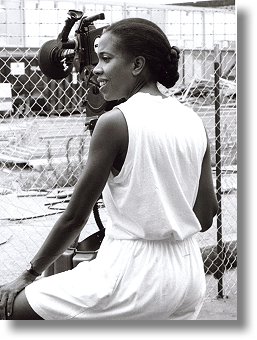 |
|
|
|
|
 |
|
|
|
|
“I think 1,800 people took the test for the Camera Assistant Training Program. In the live action category, they only took seven people. I was the only woman they took.”
Sabrina Simmons, one of Hollywood’s first female camera assistants, now a director (Los Angeles)
|
|
|
|
|
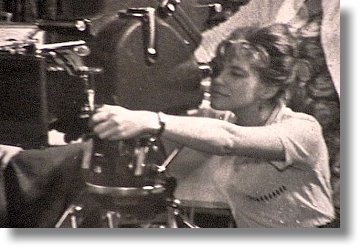 |
|
|
“My choice has been to keep my efforts in the indie world.... I certainly don't want to be anywhere where I'm not embraced with open arms.”
Nancy Schreiber, ASC (New York/Los Angeles)
|
|
|
|
|
|
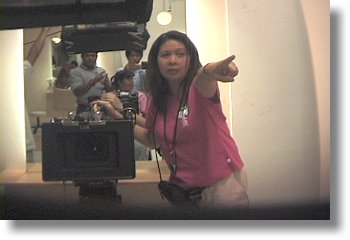 |
|
|
|
|
“I was this woman with a pretty strong character, who could keep my men from drinking and fighting and could keep them in line, working well, and reserve good relations with the crew. That was my specialty.”
Marina Goldovskaya, shooting in the former U.S.S.R.
|
|
|
|
|
|
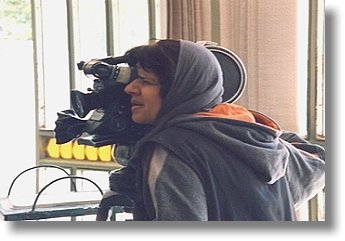 |
|
|
“I love it when my kids are proud: ‘Mom, I saw you! We watched at the awards night!’ More than the awards, it’s seeing your children watching what you do and saying they’re proud of you.”
Lee Meily, Director of Photography, The Philippines.
|
|
|
|
|
|
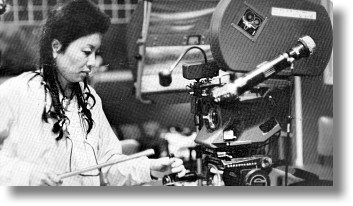 |
|
|
|
|
“In my opinion, you won't experience difficulties only because you are a woman. It's quite the opposite sometimes: you might even get treated better as a woman... You know guys!”
Rozette Ghaderi, Director of Photography (Tehran, Iran)
|
|
|
|
|
“I started shooting, and…I discovered that the key to my shooting was using the camera as a vessel, a receptacle. By this, the act of shooting becomes yin… The yang takes over when I light, when I become the dominant, aggressive force. I make the light happen.”
Geraldine Kudaka, former Camera Assistant (Hollywood)
|
|
 |
 |
 |
 |
 |
 |
 |
 |
|
 |
|
|
“There’s something about embarking on your first movie as a cinematographer with a first-time director that you can never recapture. It’s like losing your virginity, in a certain sense.”
Amy Vincent, ASC, Director of Photography
(Hollywood)
|
|
|
|
 |
|
|
“I wish that I did more studio pictures. I think we all wish, once we get into doing studio pictures, that we could stay there.”
Sandi Sissel, ASC, Director of Photography.
www.sandisissel.com
|
|
|
|
 |
|
“I personally think my biggest job is to ensure the safety and well-being of my crew. I’ve gotten many e-mails from crew people saying, ‘Thank you so much, because this is the first time that any DP has ever asked me, 'Are you ok? Are you doing ok?'"
Ellen Kuras, ASC (New York/Los Angeles)
|
|
 |
 |
 |
 |
 |
 |
|
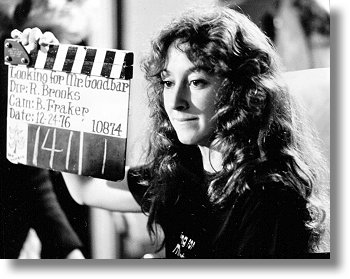 |
|
|
“In 1975, when I got into the Camera Assistants Training Program, I was pretty much the first woman anyone had seen on the set.”
Leslie Hill, one of Hollywood’s first female camera assistants, shooting Christmas Eve on Looking for Mr. Goodbar (1976).
|
|
|
|
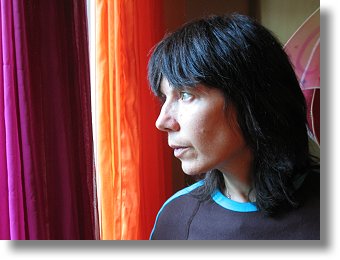 |
|
|
“I felt like I really was interested in imagery and the intensity that images have on people-- how they affect people in quiet, but very powerful ways. So, I was pretty sure from the get-go I wanted to be a cinematographer. I transferred to NYU and started shooting as soon as I could.”
Lisa Rinzler, Director of Photography (New York)
Photo Credit: Jendra Jarnagin, DP
|
|
|
|
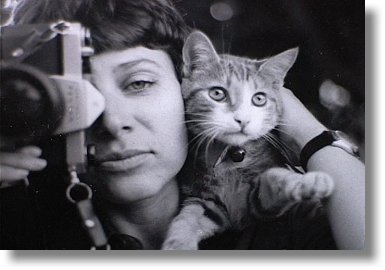 |
|
“People do not see, because they’re blind between the ears. If you are told that any individual belonging to a certain group is going to be incompetent, that’s what you are going to believe, unless you actively challenge that perception.”
Estelle Kirsh (Hollywood/New York)
|
|
|
|
|
 |
|
© 2007-2021 by Alexis Krasilovsky - All rights reserved
|
|
|
|
|
|